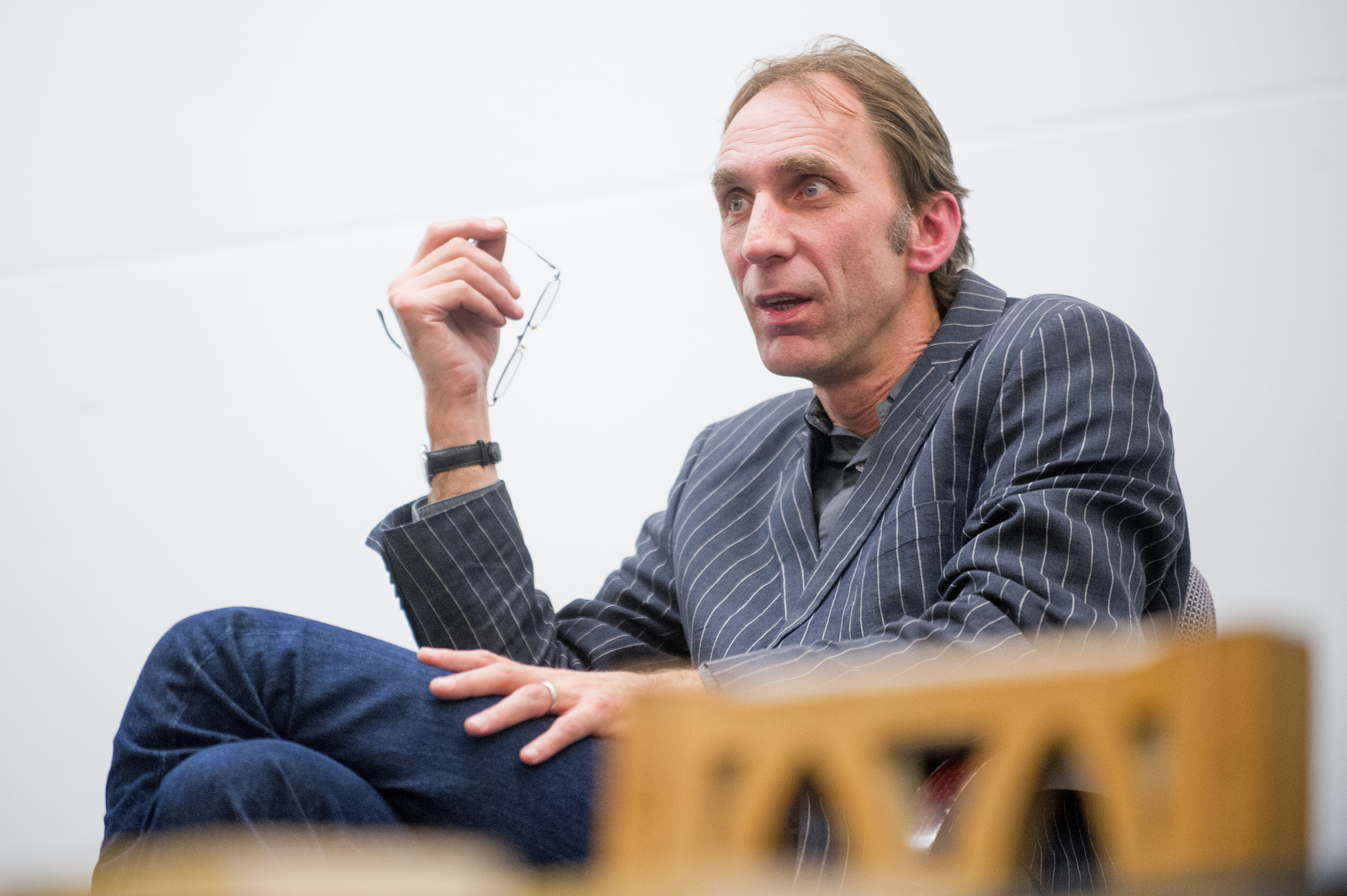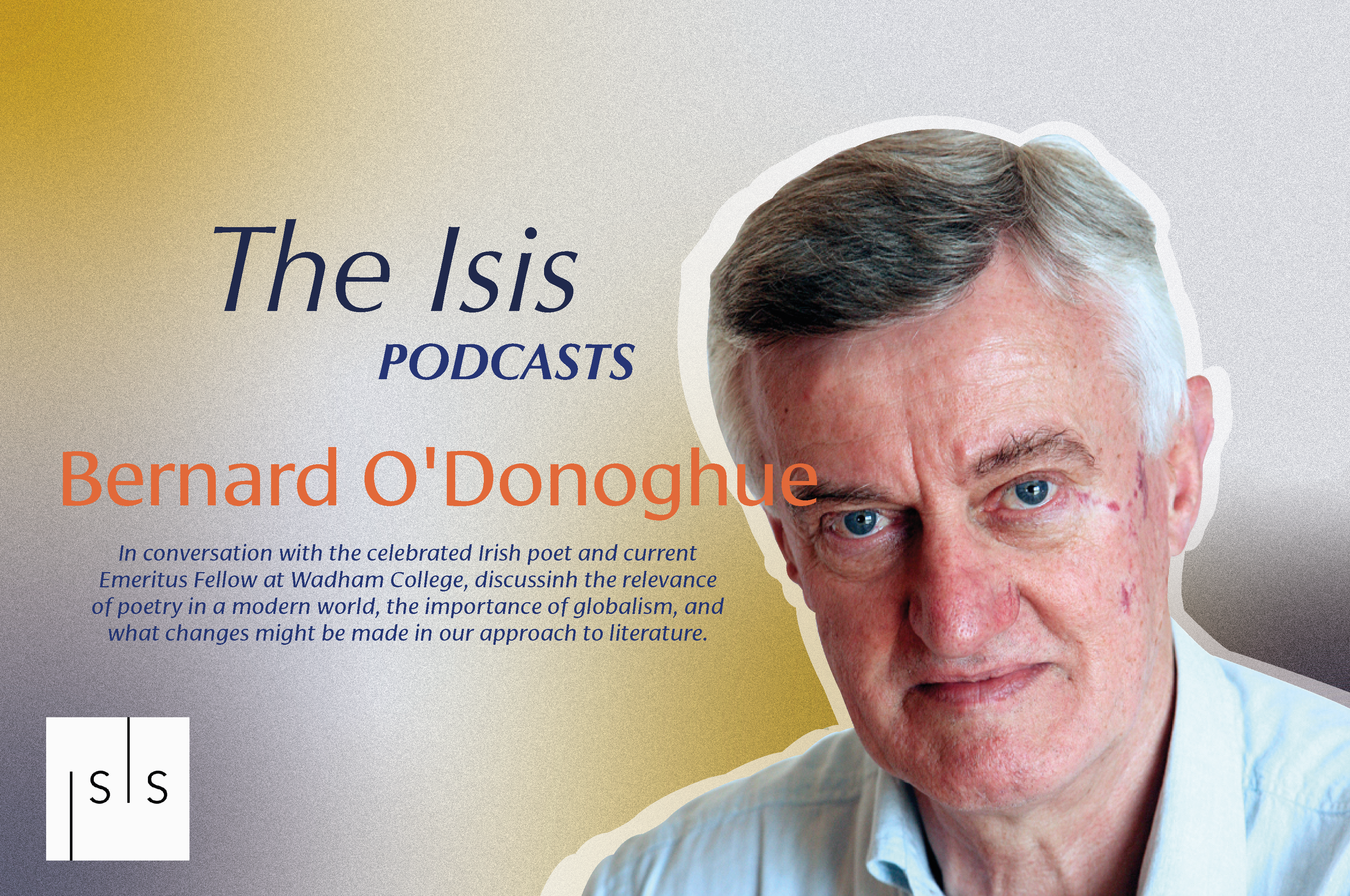
“Writing’s such a labour-intensive way of attention-seeking. It doesn’t really make any sense.”: An Interview with Will Self
First published in 2001
Ex-drug addict, novelist, short story writer, social commentator, journalist, permanent occupier of The Eye’s Pseud’s Corner, Julie Burchill and Bret Easton Ellis’ best mate, Tom Hill talkes to former Isis cartoonist and his bitter-sweet idol Will Self.
Why should you irk me?
Oh … I think people are uneasy with books that are in some sense non-naturalistic, that contain words that they don’t immediately understand, they’re uneasy with books that deal with deeper-level subjects than – I’ve got nothing against Joe [Coe]’s novel [What A Carve Up!], but it is that kind of naturalistic book set in the definable, recent past, with very specific political events, it’s not, like Great Apes for instance, a novel about what the meaning of anthropocentrism is, what the impact of ideas like Social Darwinism are on our conception of what it is to be human. Maybe this sort of thing does irk people; maybe it’s my propensity for scriptology and crossing certain taboos in literature, I don’t know. I think if my work irks for any reason it’s perhaps that people don’t really want to think too much – they’d rather read books that are glib, or confirm them in their idea of themselves – that have easy levels of identification, that are merely entertaining, which is, not really what I’m about. What do you think?
Is it possible to take the drugs out of Self?
Well – I have taken the drugs out of Self.
Do the critics have the capacity to even remotely disturb you?
I don’t really pay any attention to what critics say about my writing. At all. I’ve never considered the judgement of a vast majority of critics to be the judgement of a peer in any meaningful sense. In fact, you know, I positively relish it if they’re divided in their estimation of what I do – I think it was Oscar Wilde who said “When the critics are at odds with each other the artist is at peace with himself”; so, er, it doesn’t really bother me, I can’t honestly say it penetrates that much.
What do you look for in the process of writing?
I think it was Martin Amis who said that you should be very worried about those periods when you’re writing when it does seem to be working, because that’s probably a very bad sign indeed. It’s such an emotional, an intense thing, much more like … like procreating, gestating and giving birth to a child than it is like any other kind of normal occupation, such a range of emotional reactions within the process of writing a novel – I think what one looks for is that the intensity of feeling is there about the work rather than any necessary technical sense of it working in the way that a production line might be working to produce a car – whether it’s working in the sense that a relationship is working with somebody, whether there’s a level of intimacy achieved, a level of passion achieved.
Is it painful? Necessary? A perverse idea of ‘fun’?
All of the above, just as much as a close relationship with somebody is – y’know, you can have friends or lovers who you think “Well, you know, I really like having sex with them, but I don’t really want to talk to them afterwards,” or vice versa, and what one looks for is the whole gamut of experiences in the creative process. I’m not one of those writers who finds writing an absolute torture at all. I feel it’s intrinsic to my life.
Is it permissible, as a writer, to lose people? Do novels of ideas, of words, of imagination inevitably bewilder and flummox?
What do people get lost in? Gargantua, Pantagruel, Don Quixote, Tristram Shandy – I mean, these are all novels of ideas to some extent – War and Peace is a novel of ideas, it’s about a theory of history derived from Vico. I don’t really understand that. I think one of the big problems with How The Dead Live is that we live in a society in which people have really stopped thinking about questions of metaphysics or spirituality, that they’re really flummoxed when a novel comes along that deals with those sorts of questions or attempts to provide some sort of reflection of what social attitudes are towards them.
Should writing, even more so reading, intrinsically be difficult?
Well, some reading shouldn’t, because that’s not what it’s truing to do, and some reading very definitely should be, and should be kind of aspirational – people should embark on it not necessarily with the view they’re going to learn something in a crude, didactic way, although that may be a component of the experience, but learned something about themselves, about life, about a wider plane of ideas.
Are drugs a necessary inevitability, or fatal to the writer?
There’s no contradiction there, is there? One is simply an observation about how integral intoxication is to our culture, and it is why people find it so tremendously difficult to stop taking drugs is because we live in a society in which 95 per cent of the adults are engaged in intoxication at some point during the average day, the other point is that my particular history of addictive illness has not been that conducive to my work, I mean I don’t know what kind of writer I would have been had I not been a drug addict, but … it’d be very hard to think of a counter-example – it’s impacted on my writing a lot, both in terms of subject, form and methodology, and I don’t think necessarily to its advantage. I find it quite easy to think that I might have been in many ways a better writer in my own terms, if I hadn’t been manic – but that’s of course almost an impossible question – addictive illness is such a comprehensive psychological, mental and physical malady that it is very much integral to who I have been, so again it’s a kind of hard question to answer.
Is outrage over drugs the worst kind of moral sycophancy?
Well – it’s a difficult question, isn’t it, if indeed it is a question. The fact of the matter is if that incident [Self taking cocaine on John Major’s campaign plane in 1997] had been some kind of situationist stunt that I’d intentionally perpetrated, which of course was to some extent congruent with a lot of the writing I did around that period and the views I espoused, then it would have been in many ways, I think, quite laudable, and there may have been a certain validity to it as a kind of demonstration of social hypocrisy; the fact of the matter was that that wasn’t the motivation. There wasn’t any motivation behind it at all, so I’ve not been able to look at it in those terms.
Define and defend (i) self-indulgence (ii) Self-indulgence (iii) spontaneous composition (iv) the artist as exhibitionist.
It carries a pejorative slant, doesn’t it, the idea of self-indulgence, but there’s never really struck me as being anything wrong with it – I mean, what do people mean by it? Do they mean I’m writing to interest myself, to amuse myself, to involve myself, to engage myself with my own text – is there anything so wrong with that? It seems to me you might as well write manuals for photocopiers if you don’t want to indulge yourself to some extent. I just don’t get any of that really, it’s a world I’m so removed from. As for the art gallery, that was about trying to do something that writing isn’t in a sense – I think Wordsworth is right, y’know, certain important types of writing are emotion recollected in tranquility, they are not emotion spontaneously generated in an art gallery; that’s a performance. But look, nobody would go into writing, would sequestrate themselves in a room for months and months and months to be an exhibitionist; I mean, it’s counter-intuitive, isn’t it? It’s such a labour-intensive way of attention-seeking, isn’t it, and it doesn’t really make any sense.







